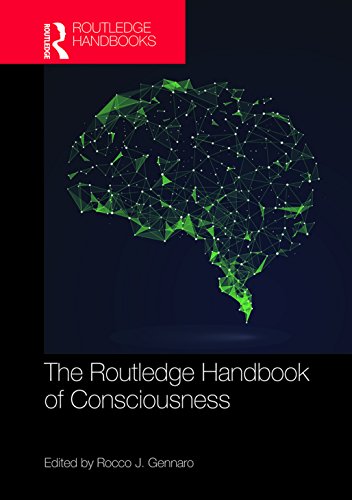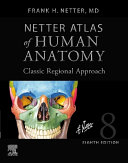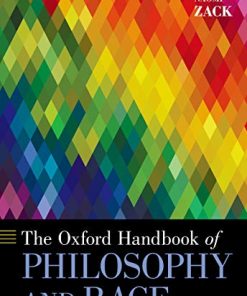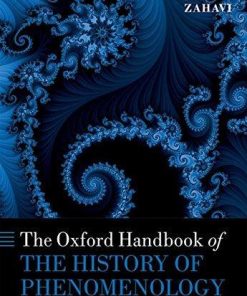The Routledge Handbook of Consciousness (Routledge Handbooks in Philosophy) 1st Edition, (Ebook PDF)
$50.00 Original price was: $50.00.$25.00Current price is: $25.00.
The Routledge Handbook of Consciousness (Routledge Handbooks in Philosophy) 1st Edition, (Ebook PDF) – Digital Instant Dowload.
The Routledge Handbook of Consciousness (Routledge Handbooks in Philosophy) 1st Edition, (Ebook PDF) – Digital Instant Dowload.
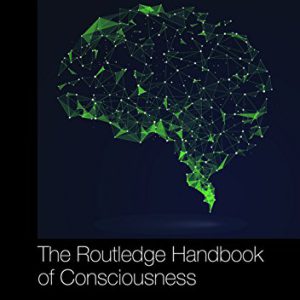
Product details:
- ISBN-10 : 1138936219
- ISBN-13 : 978-1138936218
- Author: Rocco J. Gennaro
There has been an explosion of work on consciousness in the last 30–40 years from philosophers, psychologists, and neurologists. Thus, there is a need for an interdisciplinary, comprehensive volume in the field that brings together contributions from a wide range of experts on fundamental and cutting-edge topics. The Routledge Handbook of Consciousness fills this need and makes each chapter’s importance understandable to students and researchers from a variety of backgrounds. Designed to complement and better explain primary sources, this volume is a valuable “first-stop” publication for undergraduate or graduate students enrolled in any course on “Consciousness,” “Philosophy of Mind,” or “Philosophy of Psychology,” as well as a valuable handbook for researchers in these fields who want a useful reference to have close at hand. The 34 chapters, all published here for the first time, are divided into three parts:
- Part I covers the “History and Background Metaphysics” of consciousness, such as dualism, materialism, free will, and personal identity, and includes a chapter on Indian philosophy.
- Part II is on specific “Contemporary Theories of Consciousness,” with chapters on representational, information integration, global workspace, attention-based, and quantum theories.
- Part III is entitled “Major Topics in Consciousness Research,” with chapters on psychopathologies, dreaming, meditation, time, action, emotion, multisensory experience, animal and robot consciousness, and the unity of consciousness.
Each chapter begins with a brief introduction and concludes with a list of “Related Topics,” as well as a list of “References,” making the volume indispensable for the newcomer and experienced researcher alike.
Table of contents:
Part 1: Mental Representation
1. Arthropod Intentionality? Andrew Knoll and Georges Rey
2. Visual imagery in the thought of monkeys and apes Christopher Gauker
3. Maps in the Head? Michael Rescorla
4. Do Nonhuman Animals Have a Language of Thought? Jacob Beck
5. Animal minds in time: the question of episodic memory Christoph Hoerl and Teresa McCormack
6. Novel Colours in Animal Perception Mohan Matthen
7. Color manipulation and comparative color: they’re not all compatible Derek Brown
Part 2: Reasoning and Metacognition
8. Animal rationality and belief Hans-Johann Glock
9. Instrumental Reasoning in Nonhuman Animals Elisabeth Camp and Eli Shupe
10. A Different Kind of Mind? Matthew Boyle
11. Can Non-Linguistic Animals Think about Thinking? José Luis Bermúdez
12. On Psychological Explanations and Self-Concepts (in some animals) Eric Saidel
13. Non-human metacognition Joelle Proust
Part 3: Consciousness
14. So That’s What It’s Like! Sean Allen-Hermanson
15. Do Fish Have Feelings? Michael Tye
16. The Unpleasantness of Pain for Nonhuman Animals Adam Shriver
17. Attention, Working Memory, and Animal Consciousness Jesse Prinz
18. Animal Consciousness and Higher-Order Thoughts. Rocco Gennaro
19. Minds and Bodies in Animal Evolution Michael Trestman
20. The Evolution of Consciousness in Phylogenetic Context Peter Godfrey-Smith
Part 4: Mindreading
21. Animal Mindreading: The Problem and How It Can Be Solved Robert Lurz
22. What apes know about seeing Marta Halina
23. Using Causal Models to Think About Mindreading Hayley Clatterbuck
24. Do Chimpanzees Reason About Belief Kristin Andrews
25. Tracking and Representing Others’ Mental States Stephen Butterfill
26. From False Beliefs to True Interactions: Are Chimpanzees Socially Enactive? Sarah Vincent and Shaun Gallagher
Part 5: Communication
27. Pragmatic Interpretation and Signaler-Receiver Asymmetries in Animal Communication Dorit Bar-On and Richard Moore
28. Communicative Intentions, Expressive Communication, and Origins of Meaning Dorit Bar-On
29. How much mentality is needed for meaning? Mitchell S. Green
30. The Content of Animal Signals Ulrich Stegmann
31. Intentionality and Flexibility in Animal Communication Christine Sievers, Markus Wild, and Thibaud Gruber
Part 6: Social Cognition and Culture
32. What is animal culture? Grant Ramsey
33. Varieties of Culture Grant Goodrich
34. Animal Traditions: What they are, and why they matter Rachael Brown
35. Primates are touched by your concern: touch, emotion, and social cognition in chimpanzees Maria Botero
36. Do chimpanzees conform to social norms? Laura Schlingloff and Richard Moore
37. Kinds of collective behavior and the possibility of group minds Bryce Huebner
Part 7: Association, Simplicity, & Modeling
38. Associative Learning Colin Allen
39. Understanding Associative and Cognitive Explanations in Comparative Psychology Cameron Buckner
40. A New View of Association and Associative Models Michael Dacey
41. Simplicity and Cognitive Models: Avoiding Old Mistakes in New Experimental Contexts Irina Mikhalevich
42. Against Morgan’s Canon Simon Fitzpatrick
43. A Bridge Too Far? Inference and Extrapolation from Animal Models in Neuroscience David M. Kaplan
Part 8: Ethics
44. Animals and Ethics, Agents and Patients Dale Jamieson
45. Moral Subjects Mark Rowlands
46. Decisional authority and animal research subjects Andrew Fenton
47. Empathy in Mind Lori Gruen
48. Using, Owning, and Exploiting Animals Alasdair Cochrane
49. Animal Mind and Animal Ethics Bernard Rollin.
You may also like…
Romance - Contemporary Romance
Medicine - Anatomy and physiology
Uncategorized
The Oxford Handbook of Philosophy and Race (Oxford Handbooks) 1st Edition, (Ebook PDF)
Medicine - Neurology
Neuroscience for Neurosurgeons 1st Edition by Farhana Akter 1108918468 9781108918466
Erotica - Fiction
Medicine - Cardiology


